Learning addition Math Worksheets for Ages 6-8
6 filtered results
-
From - To
Ensure your child’s success in math with our specially designed Learning Addition Math Worksheets for Ages 6-8. At Kids Academy, our engaging and interactive worksheets help young learners master basic addition skills through fun and easy-to-follow exercises. Perfect for first and second graders, these activities support the development of strong mathematical foundations. Each worksheet combines vibrant visuals and practical problems to keep children motivated while reinforcing essential concepts. Our expertly crafted resources have been designed with both educators and parents in mind to make learning seamless and enjoyable. Start your child on the path to math success today!
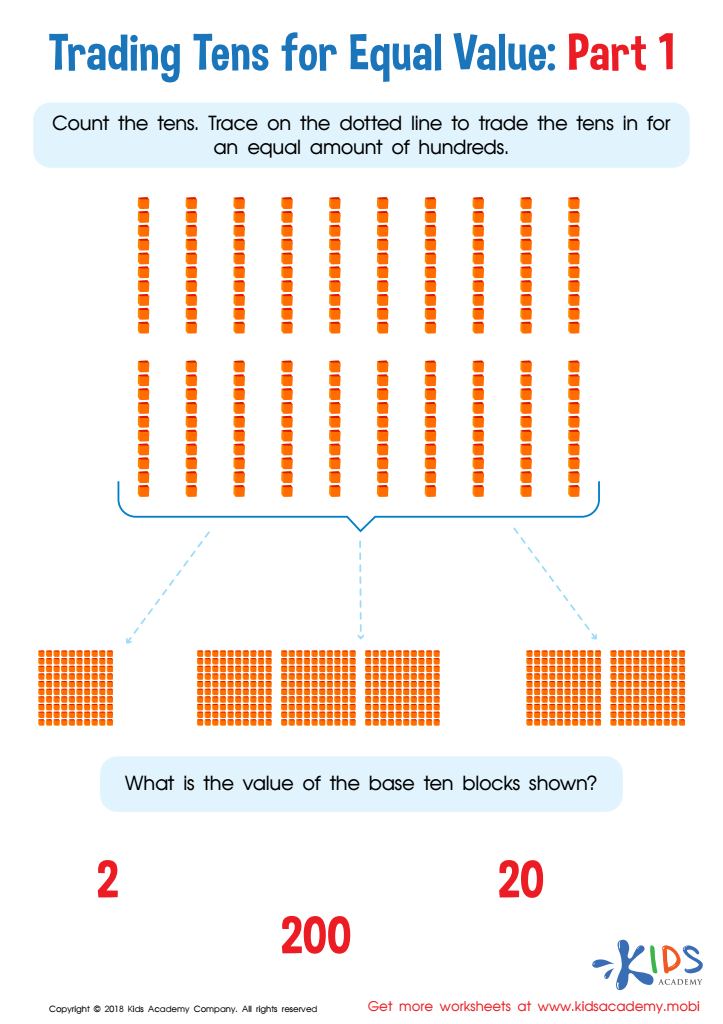

Trading Tens for Equal Value Worksheet: Part 1
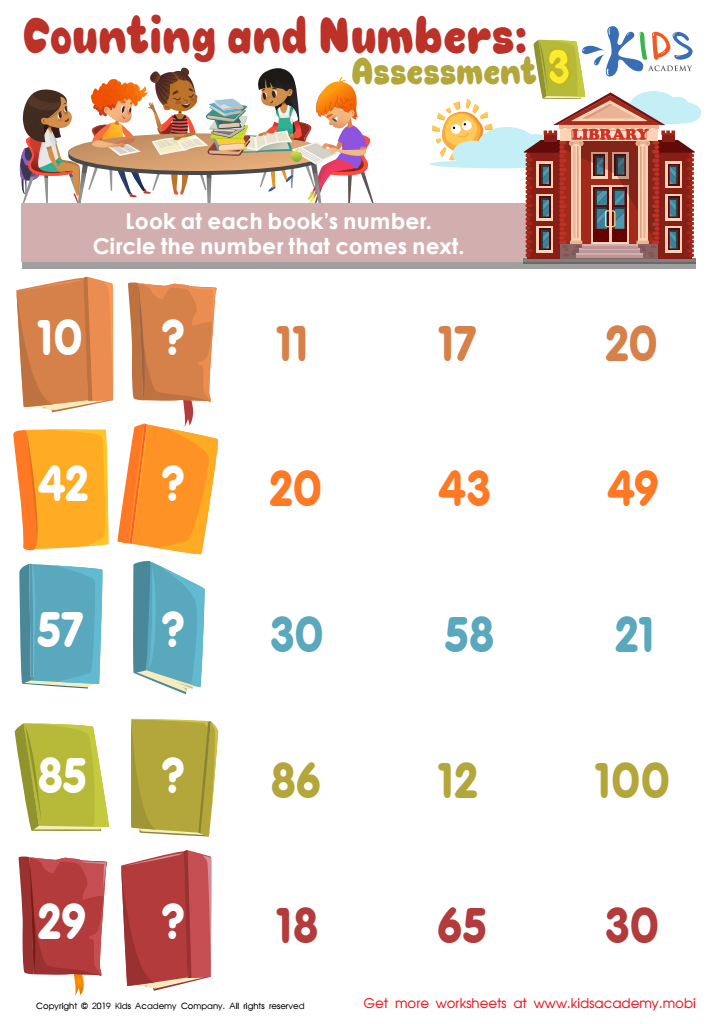

Counting and Numbers: Assessment Worksheet
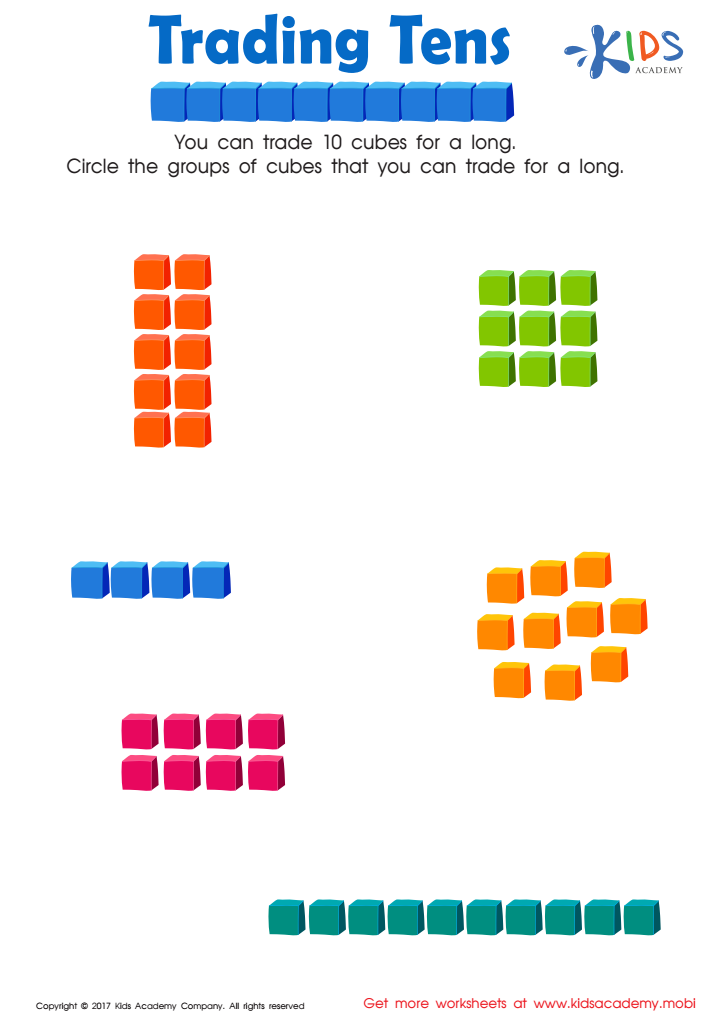

Trading Tens Worksheet
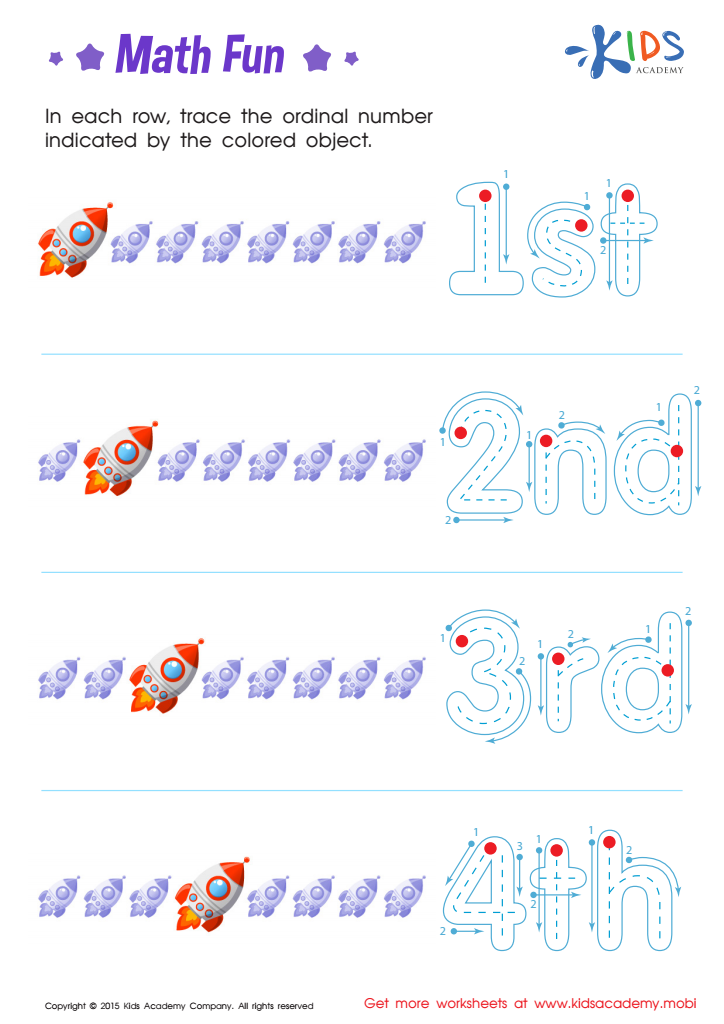

Ordinal Numbers: Math Fun Worksheet
Teaching addition to children ages 6-8 is crucial for laying a solid foundation in mathematics, which is important for their future academic and everyday life. At this developmental stage, children are naturally developing cognitive skills that help them understand and solve problems, making it the ideal time to introduce basic arithmetic concepts like addition.
First, understanding addition enhances logical thinking and problem-solving skills. These skills are not just relevant in math but are crucial in every subject they study and in everyday situations where they need to make decisions and analyze outcomes.
Second, early proficiency in addition builds confidence in math. When children master basic math skills, they gain a sense of achievement, motivating them to tackle more complex mathematical problems and subjects confidently.
Additionally, math is cumulative. Addition is a fundamental building block for future topics such as subtraction, multiplication, division, and more advanced areas like algebra and calculus. Without a solid grasp of basic addition, these future concepts can become significantly more challenging.
Lastly, addition skills are essential in daily life for activities such as handling money, telling time, and even cooking. By helping children understand addition, parents and teachers equip them with practical skills they will use throughout their lives. Investing time in teaching addition pays off in creating capable, confident, and independent individuals.
 Assign to My Students
Assign to My Students
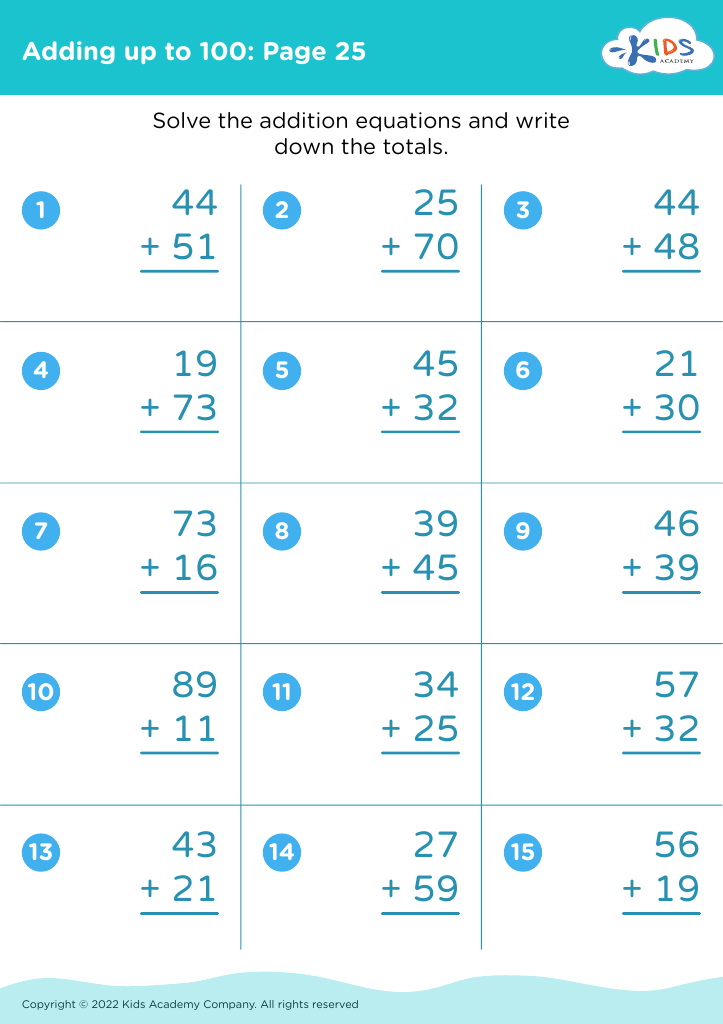







.jpg)









